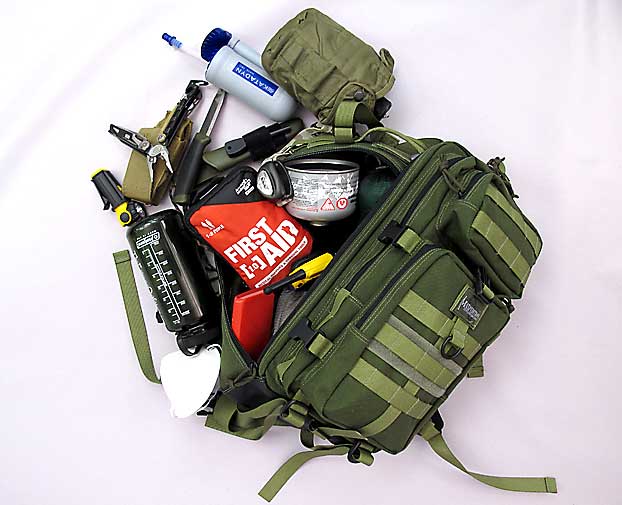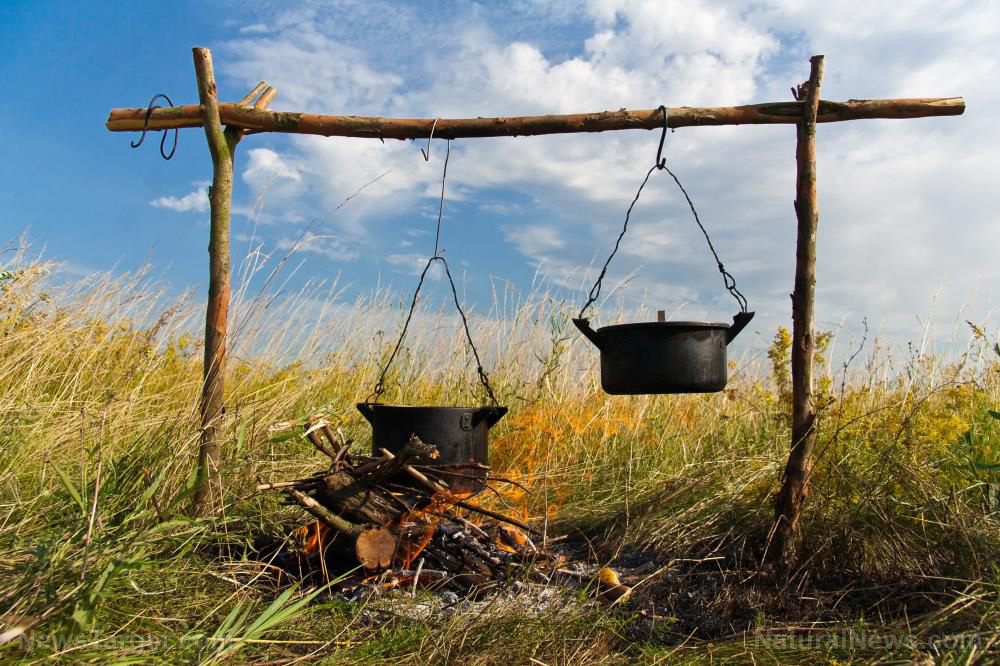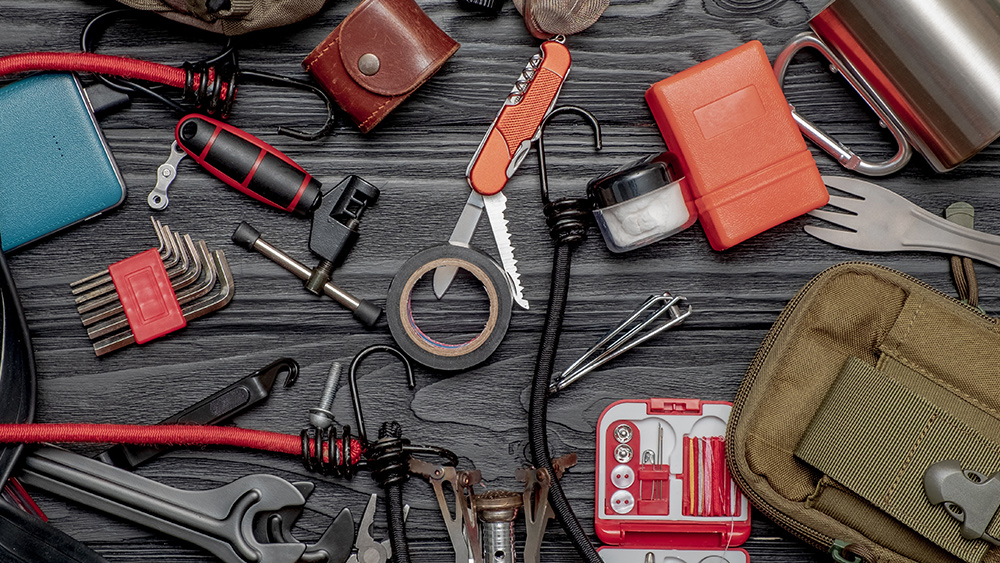
Survivalists and preppers all around the globe are very familiar with the term bug-out bag.
"Generally, the bag is for when you need to leave a location to stay safe. It has the essential basic supplies to make that happen," said Craig Caudill, a survival instructor at Bug-Out Bag Academy.
Caudill said "it can be anything you make it" and does not have to be complicated as long as it meets all the requirements, adding that it can come in a variety of forms – a simple hiker's backpack, duffel bag and even a guitar case.
According to Missouri resident Andrew Pontius, founder of Bug-Out Bag Academy, a bug-out bag is something readily accessible and ready to go at a moment's notice. It typically contains items crucial to survival, such as shelter, water, food, a heat source, first-aid and clothing that would last for a minimum of three days.
"The general belief is that's the average amount of time it would take you to be able to be located or rescued during a wide-scale disaster," Pontius said, referring to the 72 hours sufficiency of bug-out bag items as well as their shelf life.
Another thing to consider, as pointed out by the academy founder, is the physical location or if the disaster is natural or man-made. "Is it going to be a wildfire? Is it going to be a hurricane? Is it going to be a tornado? That sort of thing," said Pontius.
In September, the DenverREADY program of the Denver Office of Emergency Management (DOEM) handed out around 600 bug-out bags within the Denver metro area. The event coincided with National Preparedness Month.
Each backpack reportedly contained a basic first aid kit, scissors, duct tape, whistle, flashlight, batteries, AM/FM radio, matches, memo book, tissue and paper towel, triple antibiotic cream, hydrogen peroxide and a can opener.
Participants in the program also received out drawstring swag bags, which contained ice scrapers, heating and cooling packs, reusable straws, water bottles and collapsible bowls among others.
"Through our fairs, we focused heavily on education, providing a vast array of educational materials on what goes in bug-out bags," said Mikayla Ortega, DOEM's marketing and communications manager.
Items you should include in a bug-out bag
Preppers know the items they should include in a bug-out bag. (Related: Bug out survival planning: Prepping a bug-out bag in less than an hour.)
"Of all the main ingredients in a bug-out bag, food, water, heat and shelter are the most important for survival," Caudill said. "If you don't have something to take care of your body heat you're not going to make it.”
His academy highlighted 75 essential items, although a typical bug-out bag may not be enough to fit all of them. The academy suggested to give hydration the utmost importance as humans can survive only about three days without water. One can pack at least three liters of drinking water, water filters and three water purification tablets.
The academy also recommended six protein and calorie-dense energy bars, dehydrated meals, stove fuel and cooking and eating utensils.
A bug-out bag must also contain extra clothes, such as a lightweight long-sleeve shirt, convertible zip-off pants, underwear, wool socks, medium-weight fleece, working gloves and a rain poncho or raincoat.
As for the shelter, the academy suggests packing a tarp or tent, a sleeping bag, a ground pad and a wool blanket. A lighter, an iron rod to create sparks for lighting campfires, three pieces of fuel and waterproof storage are recommended as well.
Other useful items to include are a Mylar survival blanket, insect repellent, a knife, an axe, LED flashlights, batteries, candles, a cell phone and two-way radios for communication.
Visit Bugout.news for more stories on prepping and bugging out.
Watch the below video about Denver handing out bug-out bags to cultivate a "safe, prepared and resilient community."
This video is from the TNTVNEWS channel on Brighteon.com.
More related stories:
Prepping tips: 16 Alternative containers for your bug-out gear.
Bug out basics: How far can you walk while carrying a bug-out bag (BOB)?
Always bring a bug-out bag, but learn how to survive without one when SHTF.
5 Survival essentials for your bug-out vehicle.
Sources include:
Please contact us for more information.




















